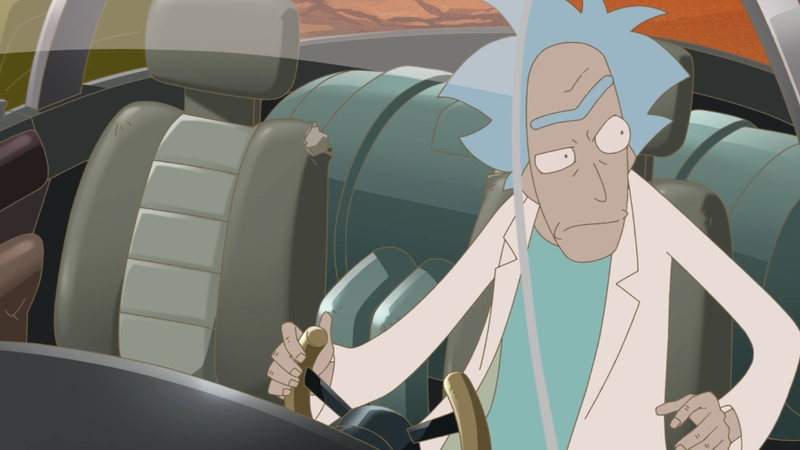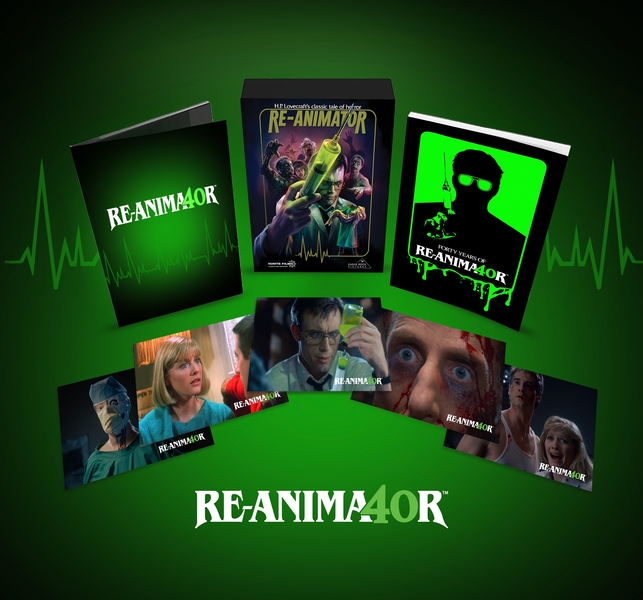
Rewiring Nostalgia Through a New Style
TV SERIES REVIEW
Rick and Morty: The Anime
TV-14 –
Genre: Anime, Satire, Sitcom, Adventure, Animation, Comedy, Sci-Fi
Year Released: 2024, 2025
Runtime: 10 x 21m episodes
Director(s): Takashi Sano
Writer(s): Takashi Sano
Cast: Youhei Tadano / Joe Daniels, Keisuke Chiba / Gabriel Regojo, Akiha Matsui / Donna Bella Litton, Manabu Muraji / Joe Daniels, Takako Fuji / Patricia Duran
Where to Watch: Available now, order your copy here: www.amazon.com
RAVING REVIEW: This happens when a series with cult-level recognition decides to stare into the multiverse and ask, “What if we changed everything… but also nothing at all?” RICK AND MORTY: THE ANIME attempts to reshape the long-running animated favorite through a different visual and emotional filter. What it builds is neither a straight sequel nor a self-contained reboot, but rather a remix that reinterprets familiar characters in unfamiliar ways. It’s messy, oddly charming, and sometimes contradictory, but it certainly plays it safe.
Right out of the gate, the series signals that it’s not interested in easing you in gently. There’s no reintroduction of core concepts, no bridge for newcomers—just a cold plunge into elaborate references and side characters that assume a working knowledge of the original. If you’ve been following the multiverse chaos for years, you’ll pick up where it left off; if you haven’t, expect to be lost for a while.
Rick’s redesign is among the most immediate shifts. Gone is the slouching, wild-haired drunk we’re used to—here he’s more composed, his edges sharpened literally and metaphorically. On the other hand, Morty maintains his familiar panicked expressions and awkward energy. That contrast feels deliberate, almost symbolic of how much the series wants to evolve its core but can’t quite leave the foundation behind.
The storylines in early episodes throw viewers into a web of virtual realities, overlapping timelines, and simulated existences. This structural choice favors concept over clarity, with ideas stacked atop one another before you adjust to the new format. This makes the opening stretch feel more like narrative overload. Patience is required, and even then, the emotional payoff often lags behind the complexity of the setup.
Where the series does start to click is when it narrows its focus. An unexpected standout episode centers on Jerry, usually a background character played for humiliation, and gives him something resembling a hero’s journey. Meeting an alternate version of himself, he’s forced to reckon with self-worth in a way the original series rarely allowed. The episode is refreshingly direct, and its emotional impact lands in part because it trades chaos for character work.
One of the most striking differences from its predecessor is the tone. An almost earnest sense of purpose replaces the relentless cynicism. The series deals openly with existential questions, self-reflection, and emotional vulnerability. Rick’s usual nihilistic detachment is softened, replaced by something closer to contemplation. He’s still a genius, but the swagger is dialed down in favor of musings on destiny and meaning.
Music plays a surprisingly strong role here. The opening theme hooks you instantly, courtesy of Otonez and CODE OF ZERO. But it’s in the subtler compositions where the series shines. One particular segment, which follows Morty as he lives out multiple lifetimes in a simulation, finds emotional resonance not in dialogue, but in its understated score. The sequence suggests the creators weren’t just trying to ride on brand recognition—they wanted to do something reflective and sincere.
Still, the identity crisis can’t be ignored. At its core, this version of the story seems unsure whether it’s a new path or a detour. It switches between abstract storytelling, character studies, familiar dynamics, and new rules—that lack of cohesion results in a more symbolic than satisfying finale.
Despite the contradiction, there’s something admirable about the attempt. Even when it struggles, the anime isn’t lazy. It stretches, it questions, it bends expectations. And yes, that means the tone might be inconsistent and the message occasionally muddled—but the ambition is real. This isn’t a low-effort rebrand. It’s a creative gamble that doesn’t always hit its mark but doesn’t settle for a safe copy-and-paste approach.
It’s easy to imagine longtime fans divided—some will appreciate the depth, others might miss the charm. But as a curiosity, it offers just enough originality to justify its existence. Maybe it’s not the version we needed, but it tries to say something new, and in this genre, that’s worth noting.
#RickandMorty
@rickandmorty
Please visit https://linktr.ee/overlyhonestr for more reviews.
You can follow me on Letterboxd, Instagram, Twitter, and YouTube. My social media accounts can also be found on most platforms by searching for 'Overly Honest Reviews'.
I’m always happy to hear from my readers; please don't hesitate to say hello or send me any questions about movies.
[photo courtesy of WARNER BROS. DISCOVERY HOME ENTERTAINMENT, ADULT SWIM]
DISCLAIMER:
At Overly Honest Movie Reviews, we value honesty and transparency. Occasionally, we receive complimentary items for review, including DVDs, Blu-rays, CDs, Vinyl Records, Books, and more. We assure you that these arrangements do not influence our reviews, as we are committed to providing unbiased and sincere evaluations. We aim to help you make informed entertainment choices regardless of our relationship with distributors or producers.
Amazon Affiliate Links:
Additionally, this site contains Amazon affiliate links. If you purchase through these links, we may receive a commission. This affiliate arrangement does not affect our commitment to honest reviews and helps support our site. We appreciate your trust and support in navigating these links.



Average Rating